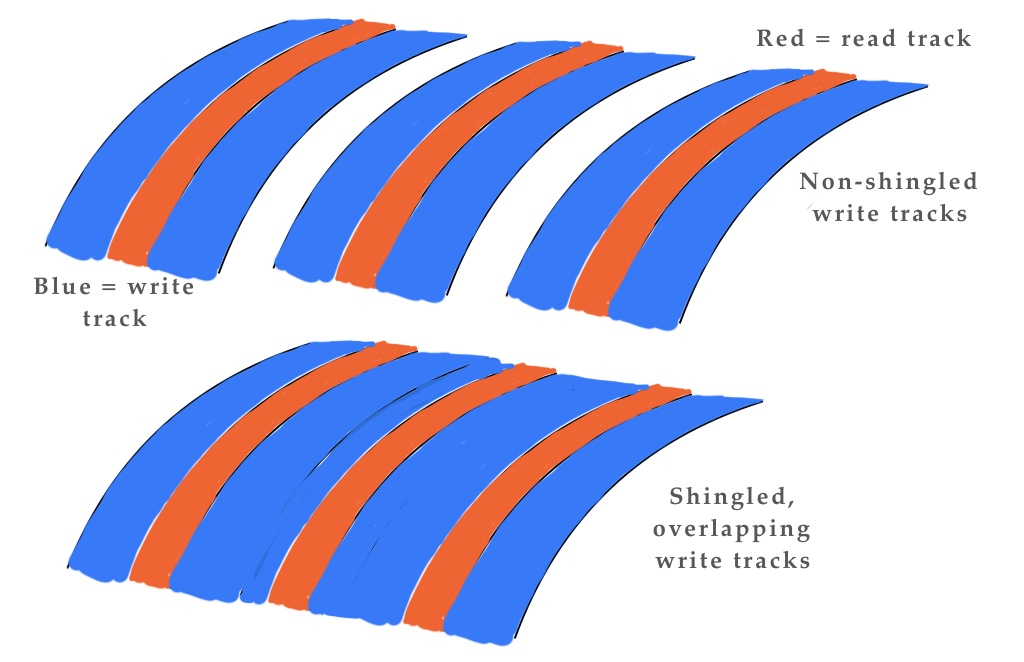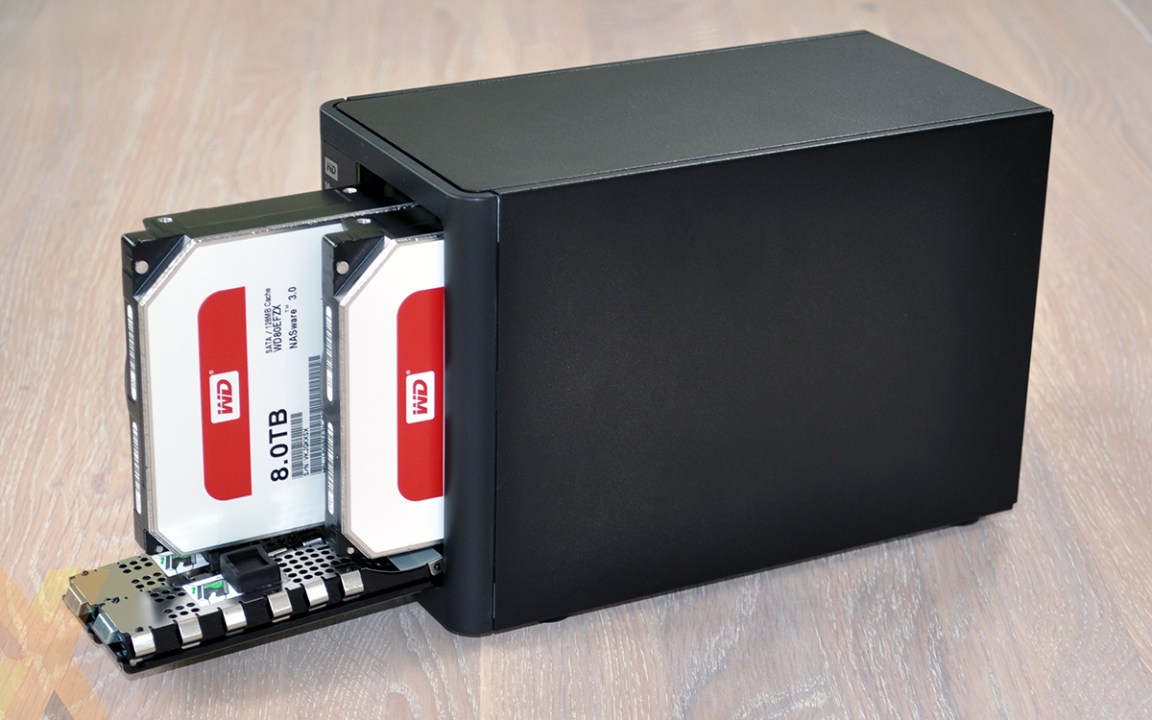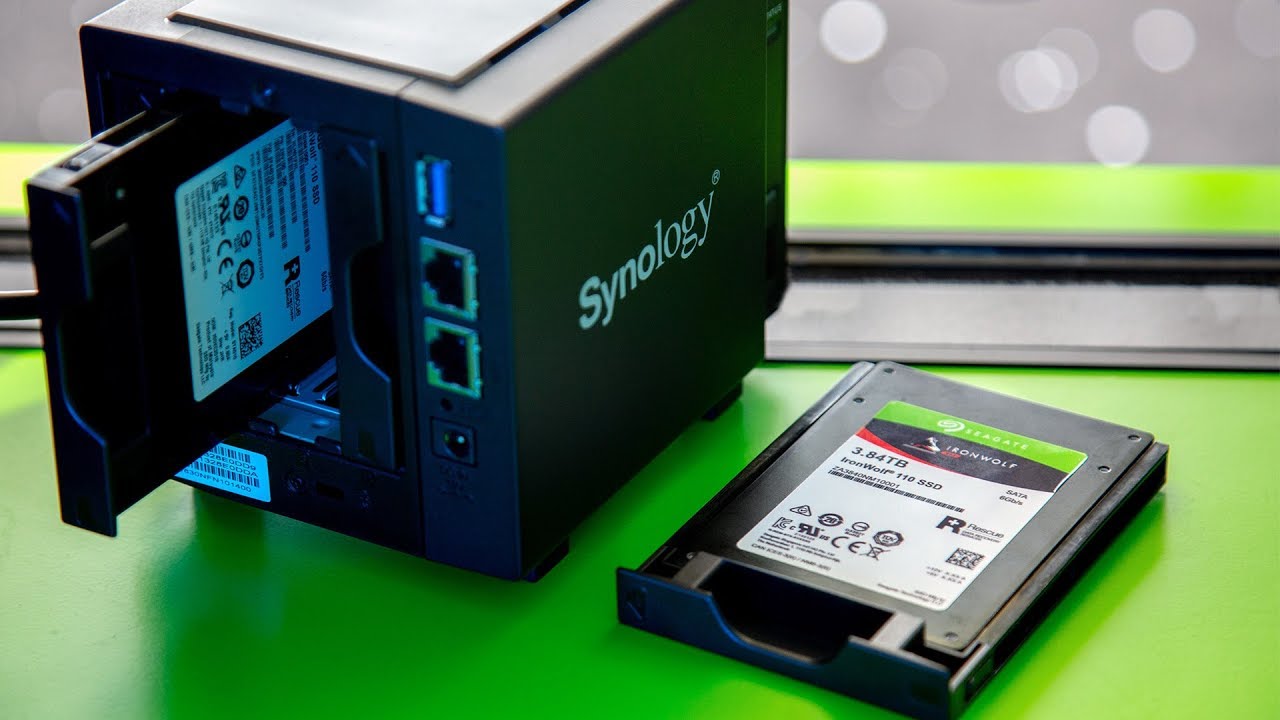A hot potato: Reports of WD, Seagate, and Toshiba quietly selling SMR disks have been confirmed by the respective manufacturers. SMR or shingled magnetic recording makes for denser and cheaper drives but also results in very slow write performance, limiting their use to archiving applications where such latency is endurable. Read on for the exact models that have been found to be using SMR.
Update (April 22): Seagate reached out to TechSpot and clarified that it does not market SMR-based hard drives as NAS drives. "Seagate confirms that we do not utilize Shingled Magnetic Recording technology (SMR) in any IronWolf or IronWolf Pro drives." The company's Barracuda 8TB (ST8000DM004) and 5TB Desktop (ST500DM000) were previously called out for using SMR without specifying the tech, however, the drives are not aimed at NAS consumers and should be treated as such.
Similarly, Toshiba's P300 4TB (HDWD240UZSVA) and 6TB (HDWD260UZSVA) desktop drives aren't directly aimed at the NAS market but they also use SMR without specifying it. In its documentation for the P300, the company says that the drive "delivers high performance for professionals," so buyers should know what they're getting before making a purchase.
This leaves Western Digital, which notes that its 2TB-6TB Red drives, aimed at NAS consumers, have device-managed SMR (DMSMR), while remaining models in the 8TB-14TB capacities use CMR (Conventional Magnetic Recording).
HDDs don't usually get in the limelight these days because most of us are regularly blown away by blazingly fast SSD speeds and the associated wait for the tech to get cheaper by the dollar. Mechanical drives, however, are still just as fascinating as any other storage medium and continue to be a reliable, cheap way for storing large amounts of data such as backups and media files, alongside their widespread use in NAS environments.
In such use cases, small businesses and consumers use NAS drives that are purposely built to withstand extensive workloads, with a RAID configuration meant to ensure data reliability and integrity. These setups are also demanding of high storage performance, something which SMR technology exchanges for storage density and cost.

As Blocks & Files notes, SMR disks are meant to store more data on a disk platter than conventional magnetic recording (CMR) disks by partially overlapping write tracks, resulting in much slower write performance than a non-SMR drive. The specification is also important for buyers in determining the type of disk they need for their use case.

For NAS, SMR drives are not recommended due to their slower write speeds. We'll note that only WD's Red (2TB - 6TB) drives are being sold as NAS and desktop drives without specifying SMR in their product documentation. The other models that have been confirmed include Seagate's Barracuda 8TB (ST8000DM004) and 5TB Desktop (ST500DM000), as well as Toshiba's P300 4TB (HDWD240UZSVA) and 6TB (HDWD260UZSVA) desktop drives. Those are not the designated NAS models within the companies' product lines however.
In a follow-up report, Blocks & Files also notes a senior industry figure calling out the PC supply chain for this issue, with OEMs like HP and Dell also failing to inform customers of the cheaper but slower storage technology accompanying their new machines.
